This article is in the Beyond The Secret Garden Category
Beyond the Secret Garden: Home from Home?
In the latest in the Beyond the Secret Garden series, which looks at the representation of black, Asian and minority ethnic voices in British children’s literature, Darren Chetty and Karen Sands-O’Connor examine ideas of home.
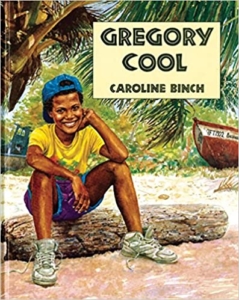 As the year draws to a close and families start making plans to get together for the holidays, home takes centre-stage. The idea of home is even more important this year than most, between the ongoing pandemic and the recent gathering of world leaders at COP26 in Glasgow to discuss our global home. But for many British people of colour, the issue of home is complicated by history. The question, ‘But where are you really from?’ was a constant reminder for many Caribbean, Asian and African migrants from the (former) colonial empire after World War II that the colour of their skin excluded them from full acceptance as British by some white Britons. The Britishness of racially minoritised people continued and continues to be questioned even beyond the first generation of post-war immigrants, publicly (as in the ‘Tebbit Test’ of 1990, questioning the loyalty of cricket supporters with family ties overseas) and in everyday interactions.
As the year draws to a close and families start making plans to get together for the holidays, home takes centre-stage. The idea of home is even more important this year than most, between the ongoing pandemic and the recent gathering of world leaders at COP26 in Glasgow to discuss our global home. But for many British people of colour, the issue of home is complicated by history. The question, ‘But where are you really from?’ was a constant reminder for many Caribbean, Asian and African migrants from the (former) colonial empire after World War II that the colour of their skin excluded them from full acceptance as British by some white Britons. The Britishness of racially minoritised people continued and continues to be questioned even beyond the first generation of post-war immigrants, publicly (as in the ‘Tebbit Test’ of 1990, questioning the loyalty of cricket supporters with family ties overseas) and in everyday interactions.
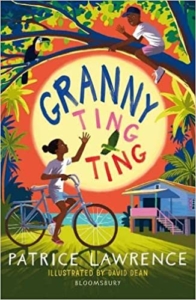 Children’s literature exploring this question in depth often involves a visit to the countries where one or more parents grew up, allowing the character (and reader) to examine questions of identity and belonging.
Children’s literature exploring this question in depth often involves a visit to the countries where one or more parents grew up, allowing the character (and reader) to examine questions of identity and belonging.
Some of these books are focused on the interaction between a family member from Britain interacting with another family member in the ‘heritage country’. For example, Caroline Binch’s Gregory Cool (1994), Patrice Lawrence’s Granny Ting-Ting (2009), and Sita Brahmachari’s Jasmine Skies (2012) all centre on children from England visiting their cousins and grandparents in the country where one of their parents came from. These books, which are designed for different ages, all set up a ‘which country is better?’ dichotomy in at least part of the book. Gregory Cool, for the picture book age, features a sullen boy who wonders ‘Why did he have to come to Tobago?’ to visit his grandparents. The enthusiasm of his cousin for the natural world of the Caribbean, from dips in the river to shinnying up coconut trees to swimming in the sea, finally convinces Gregory that ‘Maybe these next four weeks wouldn’t be so bad after all’. But although he decides to enjoy himself, there is no sense that Gregory sees Tobago as anything more than a holiday.
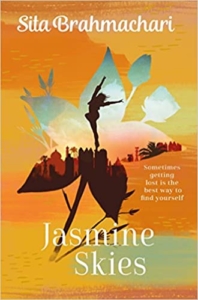 This is true also for Jehvon’s trip in Natasha N Brown’s Jehvon Goes to Jamaica (2020), illustrated by Shiela Alejandro, where Jehvon is shown enjoying a range of activities including eating, shopping, playing dominoes, swimming and listening to reggae music. Rocket’s trip to Jamaica in Clean Up! (2020) written by Nathan Bryon and illustrated by Dapo Adeola, begins as a holiday, but develops into environmental activism involving ‘everyone on the island’. In A Grand Place (2021), written by Leighan Renaud, Zora takes a bus ride to town to meet Grandma. Elizabeth Lander depicts the lush beauty of Grenada, a country Zora is visiting, but also ‘a grand place she can call home’.
This is true also for Jehvon’s trip in Natasha N Brown’s Jehvon Goes to Jamaica (2020), illustrated by Shiela Alejandro, where Jehvon is shown enjoying a range of activities including eating, shopping, playing dominoes, swimming and listening to reggae music. Rocket’s trip to Jamaica in Clean Up! (2020) written by Nathan Bryon and illustrated by Dapo Adeola, begins as a holiday, but develops into environmental activism involving ‘everyone on the island’. In A Grand Place (2021), written by Leighan Renaud, Zora takes a bus ride to town to meet Grandma. Elizabeth Lander depicts the lush beauty of Grenada, a country Zora is visiting, but also ‘a grand place she can call home’.
The cousins, Michael and Shayla, in beginning chapter book Granny Ting-Ting compete over which is better, London or Trinidad, but it is a lopsided comparison because Shayla has never been to London and must believe what Michael says about it. She worries she is ‘not clever enough’ (p69) to be a Londoner, while Michael has an easy time being ‘a real Trinidadian’ (p62). The idea that Michael belongs to Trinidad as well as to London causes envy in Shayla. Mira Levenson, in Brahmachari’s book for older readers, however, has a more complicated relationship with her grandfather’s home country of India. A visit to her cousin at first just brings Mira ‘closer to the stories Grandad used to tell me’ (p61), stories which Mira thinks ‘help you to see where you stand in the world’ (p62). However, after several weeks in India, Mira understands ‘what Grandad meant about being “suspended between homelands”, because right now I feel as if my heart’s being torn in two’ (p333). Unlike Binch’s and Lawrence’s stories, Brahmachari’s ends with uncertainty for Mira about where ultimately she will decide to belong.
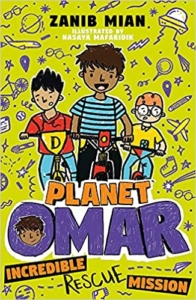 In I Won’t Go to China (O’Brien) written by Enda Wyley and illustrated by Marie Thorhauge, Chang-ming is disappointed that he will miss playing in the forthcoming football match because he will be making his first trip to China. This provokes him to reject noodles for pizza and to complain about how his name differs from his class-mates’. His teacher reframes his situation, suggesting that he will be representing the school in China and that he can be an ‘Expert Reporter’ on life in China for his class-mates in Ireland. Observing the hustle and bustle of preparations for the New Year, Chang-ming observes that ‘It’s like Christmas back in Ireland’ (p21). However not everything he encounters can be compared to his life in Ireland, ‘Chang-ming had never seen anything like Beijing’ (p22). When his grandmother hugs him on meeting him for the first time, he feels ‘strange and happy’ (p25). The story concludes with Chang-ming declaring that he is both an ‘Expert Reporter and a footballer’, suggesting a realisation that one can hold multiple identities and resist having to choose one. It is possible to question the educational approach of his teacher and the extent to which his Expert Reporter role situates his Chinese identity as valuable to the extent that it benefits his classmates in Ireland. However, the story ends with Chang-ming declaring that he is ‘glad to be Chinese’, suggesting that his trip has had a transformational effect on him.
In I Won’t Go to China (O’Brien) written by Enda Wyley and illustrated by Marie Thorhauge, Chang-ming is disappointed that he will miss playing in the forthcoming football match because he will be making his first trip to China. This provokes him to reject noodles for pizza and to complain about how his name differs from his class-mates’. His teacher reframes his situation, suggesting that he will be representing the school in China and that he can be an ‘Expert Reporter’ on life in China for his class-mates in Ireland. Observing the hustle and bustle of preparations for the New Year, Chang-ming observes that ‘It’s like Christmas back in Ireland’ (p21). However not everything he encounters can be compared to his life in Ireland, ‘Chang-ming had never seen anything like Beijing’ (p22). When his grandmother hugs him on meeting him for the first time, he feels ‘strange and happy’ (p25). The story concludes with Chang-ming declaring that he is both an ‘Expert Reporter and a footballer’, suggesting a realisation that one can hold multiple identities and resist having to choose one. It is possible to question the educational approach of his teacher and the extent to which his Expert Reporter role situates his Chinese identity as valuable to the extent that it benefits his classmates in Ireland. However, the story ends with Chang-ming declaring that he is ‘glad to be Chinese’, suggesting that his trip has had a transformational effect on him.
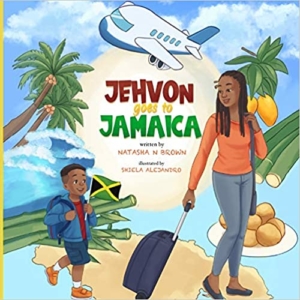 In Incredible Rescue Mission (2020), the third book in Zanib Mian’s Planet Omar series, Omar visits Pakistan for the first time. He knows little about Pakistan apart from his cousin’s opinion that ‘the pizza is yuck’. On arrival, he instantly falls in love with the country: ‘It was noisy and dirty, but it was amaaaaaazing!’ (p172). He is captivated by the traffic, the tastes and the colours on display at the wedding he attends. Omar’s teacher in England refers to him as Pakistani; when he sees himself dressed for a wedding in Pakistan, he describes himself as looking ‘like a different kid. Like my own Pakistani twin’ (p188). For all the fun he has, on returning to England he tells us ‘There’s no place like your own home’ (p234).
In Incredible Rescue Mission (2020), the third book in Zanib Mian’s Planet Omar series, Omar visits Pakistan for the first time. He knows little about Pakistan apart from his cousin’s opinion that ‘the pizza is yuck’. On arrival, he instantly falls in love with the country: ‘It was noisy and dirty, but it was amaaaaaazing!’ (p172). He is captivated by the traffic, the tastes and the colours on display at the wedding he attends. Omar’s teacher in England refers to him as Pakistani; when he sees himself dressed for a wedding in Pakistan, he describes himself as looking ‘like a different kid. Like my own Pakistani twin’ (p188). For all the fun he has, on returning to England he tells us ‘There’s no place like your own home’ (p234).
Sophia Acheampong’s Ipods in Accra (2009) is a YA tale of Makeeda, who lives in Harrow, London and travels with her family to Ghana. Makeeda agrees to a bragoro, a puberty ceremony, and describes the discussions that take place in the planning for this. Whilst her cousin Tanisha is against the ceremony on feminist grounds, Makeeda has a feeling of wanting ‘a connection with my Ghanaian heritage…beyond the words on a page of a textbook’ (pp113-114). The place of tradition is explored in the story both in terms of Makeeda’s Ghanaian family but also in a sub-plot of a relationship between a Hindu friend and her Muslim boyfriend that meets with strong parental disapproval.
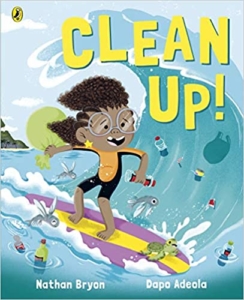 Makeeda observes the differences not only between England and Ghana, but between the cities of Kumasi and Accra. She visits a museum to learn more about the history of the Asante kingdom. Finding herself referred to as ‘English girl’ by family in Ghana, Makeeda reflects how ‘in London, I sometimes felt like an outsider. I couldn’t believe that here in Ghana, people still considered me different. So where did I actually belong?’ Towards the end of the story, it is her parents who tell her that she and her sister are ‘British Ghanaians’. This could be interpreted as her identity being explained to her rather than claimed by her; alternatively, that her parents show empathy in understanding how their migration impacts their daughter’s identity. Makeeda is able to use this insight to empathise with her new boyfriend, Nick who sees himself as Ghanaian, Polish and British.
Makeeda observes the differences not only between England and Ghana, but between the cities of Kumasi and Accra. She visits a museum to learn more about the history of the Asante kingdom. Finding herself referred to as ‘English girl’ by family in Ghana, Makeeda reflects how ‘in London, I sometimes felt like an outsider. I couldn’t believe that here in Ghana, people still considered me different. So where did I actually belong?’ Towards the end of the story, it is her parents who tell her that she and her sister are ‘British Ghanaians’. This could be interpreted as her identity being explained to her rather than claimed by her; alternatively, that her parents show empathy in understanding how their migration impacts their daughter’s identity. Makeeda is able to use this insight to empathise with her new boyfriend, Nick who sees himself as Ghanaian, Polish and British.
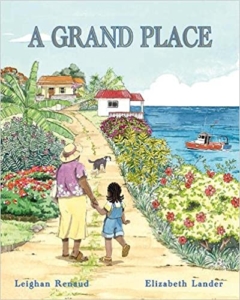 Acheampong’s Makeeda and Mian’s Omar both have moments during their trip of reflecting on their own position of relative privilege in the countries they visit. Omar, the younger of the two characters, appears excited to discover his family has a maid, though he is concerned about the welfare of the people who approach his father on the street asking for money. Makeeda’s concerns are broader, and centre around the educational opportunities for domestic staff; however, they don’t go as far as interrogating the relative wealth of the two countries she finds herself in. This is perhaps unsurprising. Both stories, as with the others discussed here, feature young people making sense of their place in the world, often discovering that the everyday ways we talk about home fail to do justice to their own experiences.
Acheampong’s Makeeda and Mian’s Omar both have moments during their trip of reflecting on their own position of relative privilege in the countries they visit. Omar, the younger of the two characters, appears excited to discover his family has a maid, though he is concerned about the welfare of the people who approach his father on the street asking for money. Makeeda’s concerns are broader, and centre around the educational opportunities for domestic staff; however, they don’t go as far as interrogating the relative wealth of the two countries she finds herself in. This is perhaps unsurprising. Both stories, as with the others discussed here, feature young people making sense of their place in the world, often discovering that the everyday ways we talk about home fail to do justice to their own experiences.
![]() is the British Academy Global Professor for Children’s Literature at Newcastle University. Her books include Children’s Publishing and Black Britain 1965-2015 (Palgrave Macmillan 2017).
is the British Academy Global Professor for Children’s Literature at Newcastle University. Her books include Children’s Publishing and Black Britain 1965-2015 (Palgrave Macmillan 2017).
![]() Chetty is a teacher, doctoral researcher and writer with research interests in education, philosophy, racism, children’s literature and hip hop culture. He is a contributor to The Good Immigrant, edited by Nikesh Shukla and the author, with Jeffrey Boakye, of What Is Masculinity? Why Does It Matter? And Other Big Questions. He tweets at @rapclassroom.
Chetty is a teacher, doctoral researcher and writer with research interests in education, philosophy, racism, children’s literature and hip hop culture. He is a contributor to The Good Immigrant, edited by Nikesh Shukla and the author, with Jeffrey Boakye, of What Is Masculinity? Why Does It Matter? And Other Big Questions. He tweets at @rapclassroom.
Books mentioned
Gregory Cool Caroline Binch, Frances Lincoln Children’s Books, 978-1847802583, £6.99 pbk
Granny Ting-Ting, Patrice Lawrence, Bloomsbury Education, 978-1472967718, £6.99 pbk
Jasmine Skies, Sita Brahmachari, Macmillan Children’s Books, 978-1509855353, £7.99 pbk
Jehvon Goes to Jamaica Natasha Brown, illustrated by Shiela Alejandro, Independent Publishing Network, 978-1838539962, £6.99 pbk
I Won’t Go to China Enda Wiley, illustrated by Marie Thorhauge, O’Brien Press, 978-1847171597, £6.99 pbk
A Grand Place Leighan Renaud, Elizabeth Lander, Formy Books, 978-1838395919
Clean Up Nathan Bryon, illustrated by Dapo Adeola, Puffin Books, 978-0241345894, £6.99 pbk
Planet Omar: Incredible Rescue Mission Zanib Mian, illustrated by Nasaya Mafaridik, Hodder Children’s Books, 978-1444951295, £6.99 pbk
Ipods in Accra Sophia Acheampong, Piccadilly Press, 978-1848120174, £6.99 pbk




